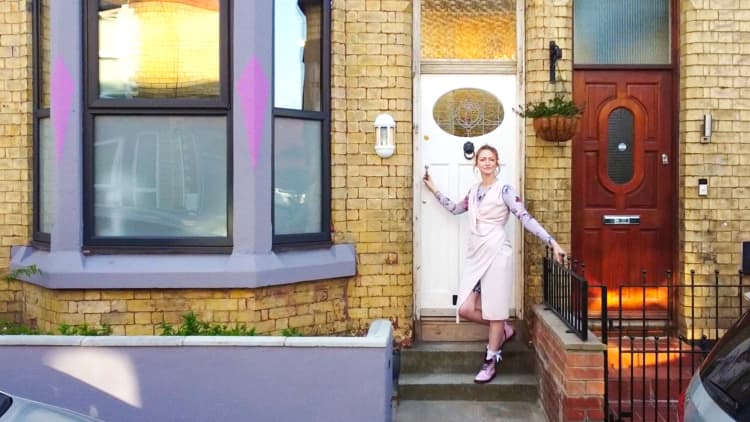The faster you buy your first home, the better, says Barbara Corcoran — and there's a simple step she recommends to make the process a little easier.
"Go in with a prequalified mortgage," Corcoran, a millionaire investor and the founder of real estate firm Corcoran Group, tells CNBC Make It.
"In today's hot market, you only get one chance to win over the seller," she explains. "There's a limited supply of houses to go around, so most homes still go to a bidding war within days of hitting the market. Getting prequalified for a mortgage allows you to march in and say 'I'll take it!' and have the bank lined up to help you close fast."
Prequalification means submitting some of your financial information to a lender ahead of time, so the bank can gauge your ability to pay a hypothetical mortgage and issue you a letter stating the terms of the loan it'd likely offer you.
Corcoran is right: There's a shortage of new homes being built in the U.S., a Realtor.com study found in March. Low inventory means higher costs, making prequalification more useful than usual. Plus, knowing your mortgage budget ahead of time helps you quickly filter out homes outside of your budget.
Here's what you need to know about getting prequalified for a mortgage, ahead of actually finding your dream first home.
How to get a mortgage prequalification
For most lenders, the prequalification process is fairly straightforward, says Jeffrey Pitt, a Charlotte, North Carolina-based mortgage loan officer.
Typically, you'll share your name, address, date of birth and your last two years of work and residential history, Pitt says.
You'll also "give the bank permission to pull your credit, and you'll go through some questions which have to do with your ethnicity, your race, things like that — just for [lenders] to make sure that they don't discriminate [against] groups or classes," he adds.
Once you get your prequalification letter, you can more knowledgeably scour the market for houses within your budget. Then, when you submit an offer on a house to a seller, include a copy of your prequalification letter. That way, they know you'll probably get approved for the mortgage loan you'll need.
How to prepare your credit for prequalification
Having a good credit score can help you land a mortgage with a small down payment. If you're already at 680 or above, you're in great shape, Pitt says.
If you aren't, getting there might take time.
"Any new inquiry and new account hurts your score first, before helping it," says Jeanne Kelly, a New York-based credit coach. "Ten percent of your credit score is based on new credit. So you don't want to get any new accounts before purchasing a home, [because] it won't help your score until six months, eight months later."
If you're hoping to buy a home in the near future, pay attention to any debt payments you owe, especially on credit cards and student loans, Kelly says. Don't miss any monthly minimum payments, and try to keep your credit card balance below 10% of your credit limit.
"You want to show activity, and that you know how to manage your accounts," Kelly says. "[Also], pay them before the statement date."
The only time you should consider opening up a new account, she says, is if "you need to be building credit because you have no credit."
Prequalification versus preapproval
If you want to go a step further, consider applying for preapproval instead of prequalification, says Pitt. Preapproval applications take a deeper look at your financial history, and some home sellers may prefer a preapproval letter to a prequalification letter.
"I'd need your last 30 day pay stubs, I'll need to pull your credit and the last 60 day bank statements to verify your assets," Pitt says.
Preapproval can be a somewhat tedious process. It can also cost money, and may require a hard credit inquiry that could temporarily lower your credit score.
If you're just browsing for homes, and you don't want to commit resources quite yet, prequalification could be an easier route. Still, you might find preapproval helpful whenever you close in on a house you want to buy.
Pitt's advice: As soon as your documents are in order and you've budgeted for the application fees, get your preapproval process started. It's more "secure" and gives your future home's seller more peace of mind, he says.
DON'T MISS: Want to be smarter and more successful with your money, work & life? Sign up for our new newsletter!
Get CNBC's free Warren Buffett Guide to Investing, which distills the billionaire's No. 1 best piece of advice for regular investors, do's and don'ts, and three key investing principles into a clear and simple guidebook.



